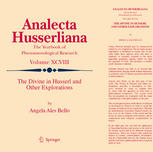

Most ebook files are in PDF format, so you can easily read them using various software such as Foxit Reader or directly on the Google Chrome browser.
Some ebook files are released by publishers in other formats such as .awz, .mobi, .epub, .fb2, etc. You may need to install specific software to read these formats on mobile/PC, such as Calibre.
Please read the tutorial at this link: https://ebookbell.com/faq
We offer FREE conversion to the popular formats you request; however, this may take some time. Therefore, right after payment, please email us, and we will try to provide the service as quickly as possible.
For some exceptional file formats or broken links (if any), please refrain from opening any disputes. Instead, email us first, and we will try to assist within a maximum of 6 hours.
EbookBell Team

0.0
0 reviewsToday, Western thought may be characterized mainly by two temptations. On one hand, greater importance is attributed to reason and, on the other hand, there appears more and more a tendency to renounce respond to the most important questions, among which we find the question of God. This produces a double result: fideism or atheism.
Edmund Husserl was able to go beyond this contraposition, digging inside human interiority to grasp the sense of human operations that lead to transcendence.
Angela Ales Bello, in the first part of her book, The Divine in Husserl and Other Explorations, provides a description of Husserl’s method in order to explain how he deals with the question of God from a philosophical perspective. The results from this investigation are compared with the main contributions of the philosophers of the past.
The second part focuses on the theme of religion as developed by Husserl in order to grasp the meaning of religious lived-experiences. Through an archeological excavation Husserl teaches us how to go to the bottom of the sacred and the divine in order to pinpoint their features and to comprehend their religious configurations in history.
In the third part one can find the application of husserlian hyletics and noetics to the field of the archaic sacred and of the different religious experiences. There are treated some particular themes as ecstasy, contemplation, incarnation, and the relationship between the human being and the God from a philosophical and a religious point of view.